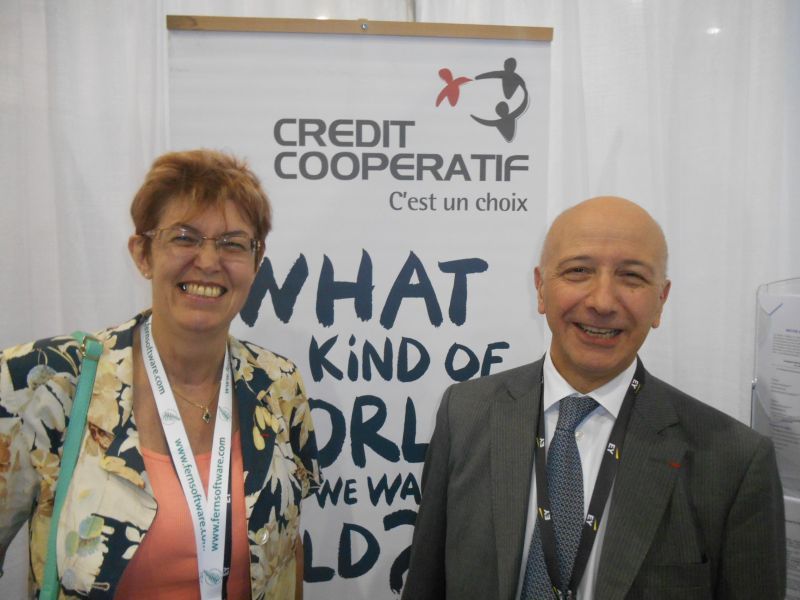
To address climate changes, cooperatives' must innovate. Conversion into renewables or turning into a wind farm is not required. The services your coop offers can already help and contribute to a better climate. In France, an outstanding example is the initiative undertaken by Crédit Coopératif which sets aside a voluntary contribution on its own foreign exchange transactions. This has greatly contributed to the financial support of a cooperation project in the Indian Himalayas.
In Crédit Coopératif's 2014 report on social responsibility, the following was written about the Himalayas project and its results:
The VCCT (Voluntary Contribution on Currency Transactions) is a 0.01% contribution based on Crédit Coopératif's volume of currency transactions, which supports the cost and donates it to a development NGO. Following a three-year partnership with GERES to participate in funding solar habitat projects in the Himalayas, and low energy-use wood-fired ovens in Morocco, the VCCT has designated a new beneficiary.
Early 2014, Crédit Coopératif's Board of Directors chose ATD Quart Monde, offering 3-year support for a rehabilitation programme in "Haut Martissant," a Port aux Princes neighbourhood, in Haiti. The programme involves supporting families in health and cultural matters.
Other environmental efforts also appear in the report
- Targeted client bases and special offers In recent years, Crédit Coopératif has developed expertise and a range of products and services to support the transition towards an economy less reliant on carbon and more respectful of the environment (GRI EN26)
- Funding direct environmental actors in renewable energy, eco-friendly activities, recycling, energy efficiency, associations dedicated to preserving the environment
- Promoting environmental diagnostic efforts with experts: INDDIGO carbon diagnostics, environmental certification in stages by 123Environment, and EnVol promoted by CCIs
- Funding collective and individual eco-friendly housing • Introducing savings and investment products which support such endeavours: lCODEVair savings accounts, Agir pour la planète demand accounts, with amounts outstanding devoted to the environment, TRI savings accounts devoted to the "Third Industrial Revolution" in the Nord-Pas-De-Calais region, themed UCITS funds on sustainable development…
- Introducing risk-sharing products for environmental associations In 2014, Crédit Coopératif loaned €77M to 45 renewable energy projects equating to a total installed capacity of 139 megawatts, or power consumption equivalent to a city of approximately 27,000 inhabitants (based on RTE and ADEME data).
- With regard to individual housing, 2012 Thermal Regulations increased the thermal efficiency of new buildings. These regulations naturally absorbed part of applications for eco-housing loans which Crédit Coopératif had been proposing since 2003. Consequently, in 2014, this offer began to concentrate more on parties in favour of bioclimatic excellency via a new evaluation grid and tariffs, oriented towards passive construction or positive energy. This grid will continue to place an emphasis on the real estate project's environmental qualities (GRI FS5).
As they are active in so many sectors, co-operatives have a transversal impact on the implementation of sustainable development measures. Co-operatives are not a be-all and end-all solution, but they are most definitely part of a chain of solutions which we must implement at all costs to ensure sustainable development.




